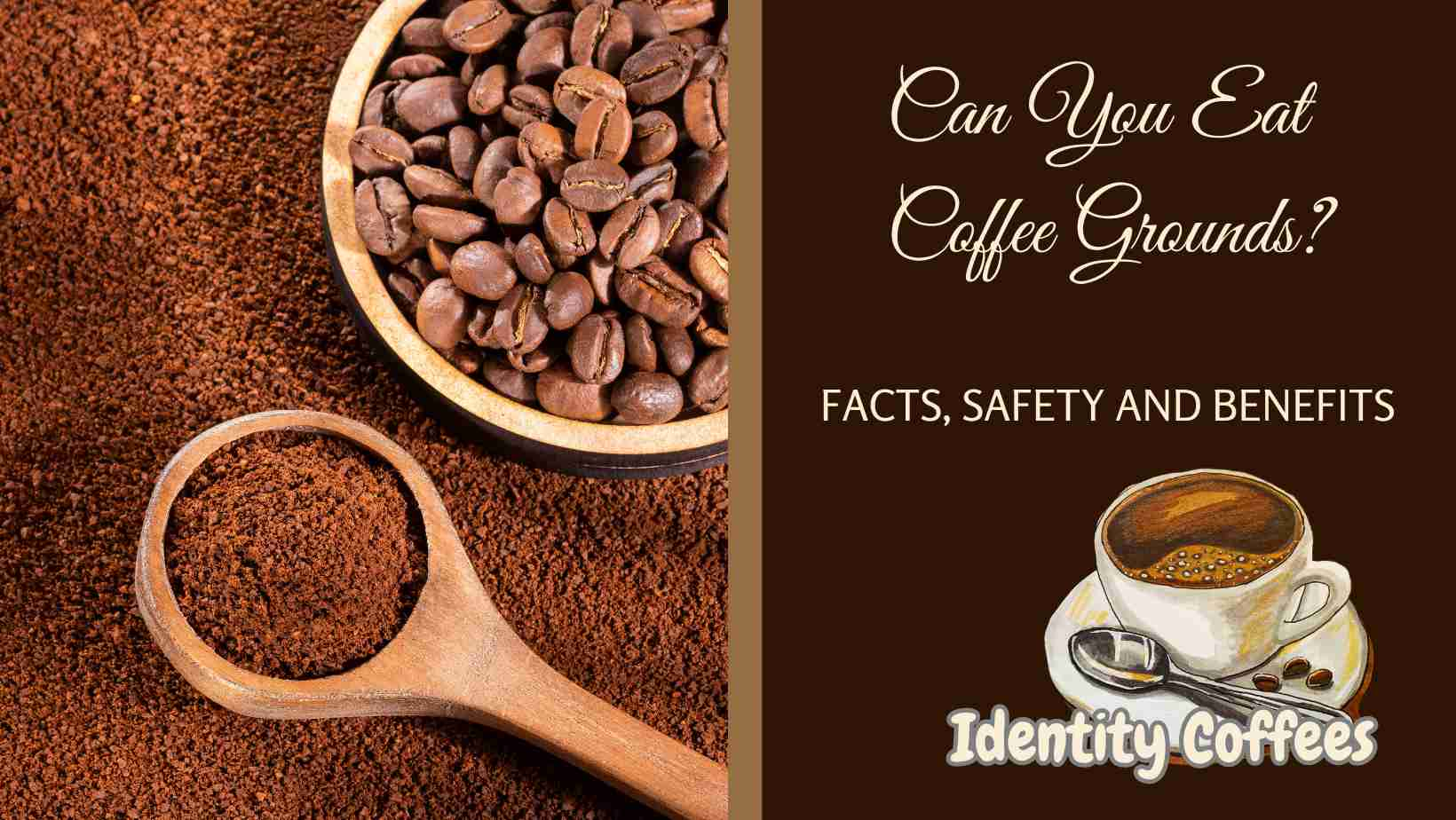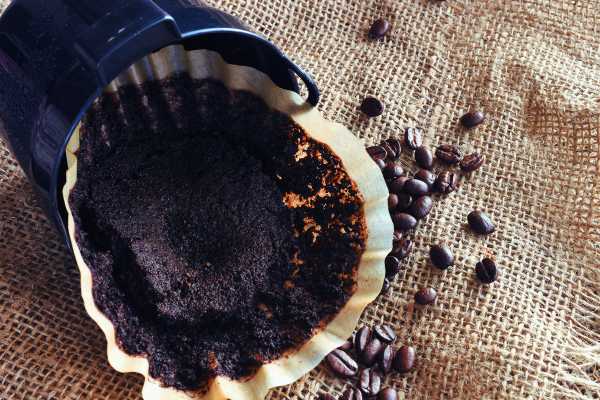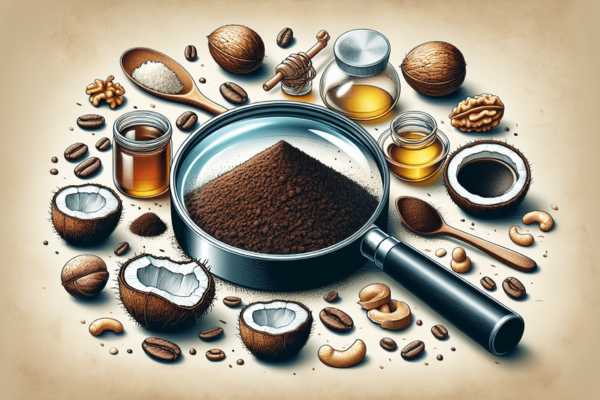Imagine waking up in the morning and you’re eager to enjoy your cup of coffee, but you realize you’re out of filters. In a moment of desperation, you wonder, can you eat coffee grounds? It might seem like an unconventional choice, but before you dismiss the idea, let’s explore whether consuming coffee grounds is safe and even beneficial.
Can You Eat Coffee Grounds and Why
Definition of Coffee Grounds
Coffee grounds are the remnants left after coffee beans have been brewed. They consist of the small particles that remain in the coffee filter or the bottom of the coffee pot. These grounds are typically dark in color and have a gritty texture.
How Coffee Grounds are Produced
Coffee grounds are produced through the process of brewing coffee. After the coffee beans have been roasted and ground to the desired consistency, they are mixed with water to extract the flavors and aroma. The water passes through the grounds, filtering out the liquid coffee while leaving behind the solid coffee grounds.
Uses of Coffee Grounds
Coffee grounds are versatile and can be used in various ways. They can be used in gardening as fertilizer, in beauty and skincare remedies, for cleaning and deodorizing, and even in cooking and baking. The rich aroma and flavor of coffee grounds make them a popular ingredient in many recipes.
Edibility of Coffee Grounds
Is It Safe to Eat Coffee Grounds
While generally it is safe to eat coffee grounds, it is important to consume them in moderation. The caffeine content in coffee grounds may affect individuals differently, so it is best to be cautious when incorporating them into your diet.
Potential Risks of Consuming Coffee Grounds
There are some potential risks associated with consuming coffee grounds. The high caffeine content can lead to increased heart rate, anxiety, or restlessness in some individuals. Additionally, coffee grounds may contain trace amounts of acrylamide, a chemical that forms when certain foods are cooked at high temperatures. This chemical has been linked to an increased risk of cancer in animal studies. However, the levels of acrylamide in coffee grounds are generally low.
Digestibility of Coffee Grounds
Coffee grounds are not easily digestible, as they consist of insoluble fibers. These fibers can be challenging for the digestive system to break down fully. Consuming large amounts of coffee grounds may lead to stomach discomfort or constipation. It is important to ensure that the coffee grounds are finely ground if they are to be consumed to improve digestibility.
Nutritional Value of Coffee Grounds
Macronutrients in Coffee Grounds
Coffee grounds contain a small amount of macronutrients. They provide some calories from carbohydrates and protein but are not a significant source of fat. However, the nutritional value of coffee grounds is relatively low compared to other food sources.
Micronutrients in Coffee Grounds
Coffee grounds contain several micronutrients, including potassium, magnesium, and niacin. However, the amounts of these nutrients in coffee grounds are not substantial enough to significantly contribute to one’s daily nutritional requirements.
Health Benefits of Eating Coffee Beans
While coffee grounds may not be a significant source of nutrients, they do offer some potential health benefits. Coffee contains antioxidants, which can help protect the body against oxidative stress and may reduce the risk of certain diseases. Additionally, coffee has been associated with improved cognitive function, increased metabolism, and decreased risk of certain types of cancer.
Ways to Consume Coffee Grounds
Adding Coffee Grounds to Food
One way to incorporate coffee grounds into your diet is by adding them to various recipes. Coffee grounds can enhance the flavor of certain dishes, especially those with chocolate, such as brownies or cakes. They can also be sprinkled over ice cream or yogurt for a unique twist.
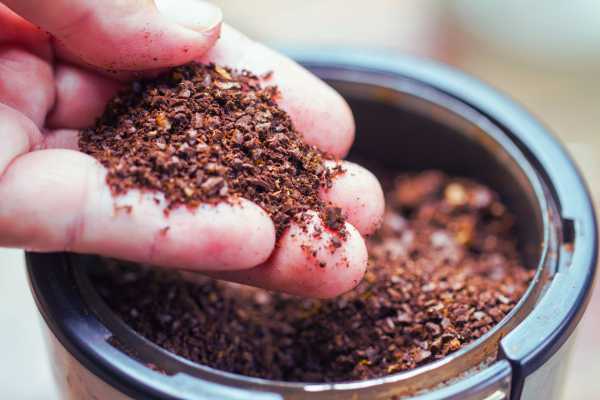
Brewing Coffee with Grounds
The most common way to consume coffee grounds is through brewing coffee. By using a French press or a coffee maker that allows for a more robust extraction, you can enjoy a cup of coffee with a slightly more prominent coffee flavor. However, it is important to note that consuming the grounds along with the coffee may result in a slightly gritty texture.
Creating Coffee Grounds Infusions
Another way to enjoy the flavor of coffee grounds is by infusing them into other liquids. You can create a coffee ground-infused oil to add a rich coffee flavor to salad dressings or marinades. Additionally, you can steep coffee grounds in hot water to create a coffee-infused tea or use them to flavor homemade liqueurs.
Recipes Using Coffee Grounds
Coffee Ground Rub for Meat
Coffee grounds can be used as a flavorful rub for various types of meat. By combining coffee grounds with spices such as paprika, garlic powder, and brown sugar, you can create a savory and aromatic rub that adds depth and complexity to your grilled or roasted meats.
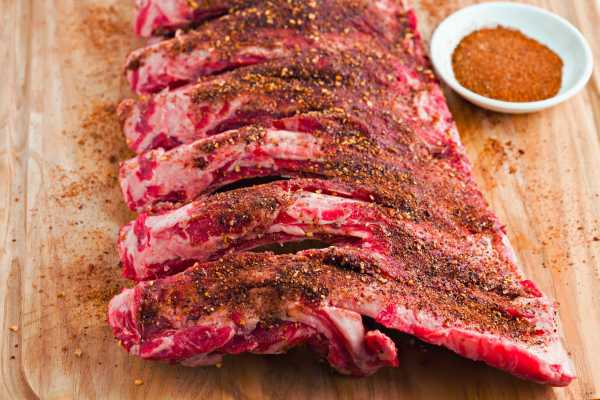
Coffee Ground Chocolate Truffles
Coffee grounds can add a delightful twist to homemade chocolate truffles. By combining melted chocolate, cream, and a small amount of coffee grounds, you can create a rich and indulgent confection. Roll the truffles in cocoa powder or chopped nuts for added texture and flavor.
Coffee Ground Marinade for Vegetables
Coffee grounds can be used to create a unique and flavorful marinade for vegetables. By combining coffee grounds with olive oil, balsamic vinegar, and herbs, you can infuse your vegetables with a deep, smoky flavor. Marinate your favorite vegetables before grilling or roasting for a delicious and unexpected taste.
Alternative Uses of Coffee Grounds
Gardening and Fertilizer
Coffee grounds can be used as a natural fertilizer for plants. They contain nutrients such as nitrogen, potassium, and phosphorus, which can enrich the soil and promote plant growth. Additionally, coffee grounds can help improve soil structure, retain moisture, and deter pests in the garden.
Beauty and Skincare Remedies
Coffee grounds have exfoliating properties, making them an excellent ingredient for homemade skincare products. They can be used as a natural scrub to remove dead skin cells, leaving the skin smooth and rejuvenated. Coffee grounds can also help reduce the appearance of cellulite when used as a topical treatment.
Cleaning and Deodorizing
Coffee grounds can absorb odors and act as a natural deodorizer. They can be used to remove unpleasant smells from the refrigerator, cutting boards, or even hands. Additionally, coffee grounds can be used as an abrasive cleaner for stubborn stains on various surfaces.
Precautions and Recommendations
Moderation and Consumption Limits
While coffee grounds can be consumed, it is important to do so in moderation. Excessive consumption of coffee grounds can lead to adverse effects due to the caffeine content. It is recommended to consult with a healthcare professional before incorporating coffee grounds into your diet, especially if you have any underlying health conditions.
Choosing high-quality Coffee Grounds
When using coffee grounds in recipes or for other purposes, it is essential to use high-quality, freshly roasted coffee grounds. Freshly ground coffee from whole beans will have a more robust flavor, enhancing the overall taste of your dishes. Additionally, choosing organic and sustainably sourced coffee grounds is recommended for those concerned about pesticides or environmental impact.
Consulting with a Healthcare Professional
If you have any concerns or questions regarding the consumption of coffee grounds, it is best to consult with a healthcare professional. They can provide personalized advice based on your specific health needs and guide you on the appropriate amount to consume.
Conclusion
Coffee grounds are a versatile and flavorful ingredient that can be enjoyed in various ways. Whether you choose to incorporate them into your recipes, use them for gardening, or explore their beauty and cleaning benefits, coffee grounds offer a unique and environmentally friendly solution. However, it is important to consume coffee grounds in moderation and be aware of any potential risks or allergies. With the right precautions and recommendations, you can explore the many uses and enjoy the rich flavors of coffee grounds.
Frequently Asked Questions (FAQs) about Coffee Grounds
Can Coffee Grounds be Reused or Recycled?
Coffee grounds can be reused or recycled in various ways. They can be added to compost bins to enrich the soil or used directly as a fertilizer for plants. Additionally, coffee grounds can be repurposed for gardening, beauty, or cleaning purposes, allowing them to be reused effectively.
What is the Shelf Life of Coffee Grounds?
The shelf life of coffee grounds depends on various factors, including the storage conditions and the type of roast. Generally, coffee grounds can be stored for several months in a cool, dark, and airtight container. However, for the best aroma and flavor, it is recommended to use them within two to four weeks of grinding.
Can Coffee Grounds Expire or Spoil?
Coffee grounds do not necessarily expire or spoil in the same way as perishable food items. However, over time, they can lose their freshness, aroma, and flavor. Storing coffee grounds properly and using them within a reasonable period will ensure the best quality and taste.
Is it OK to eat ground coffee?
While consuming small amounts of coffee grounds is generally considered safe, it is not recommended due to several factors. Coffee grounds can be difficult to digest and may cause gastrointestinal issues. Additionally, they may contain higher levels of caffeine than brewed coffee. It is advisable to stick to drinking coffee rather than eating the grounds.
What are the benefits of eating coffee grounds?
Eating coffee grounds can have potential benefits. They are rich in antioxidants, which can help protect against cell damage and reduce the risk of chronic diseases. Additionally, coffee grounds contain dietary fiber that can aid digestion and promote a feeling of fullness. However, it is important to consume them in moderation and be aware of potential side effects such as gastrointestinal discomfort.
Can you eat coffee grounds for weight loss?
Eating coffee grounds for weight loss is not recommended. While some individuals might believe that consuming coffee grounds can aid in weight loss, there is no scientific evidence to support this claim. In fact, ingesting coffee grounds can have adverse effects on your health. It is best to stick to consuming brewed coffee in moderation for its potential health benefits.
Further Reading…
- Discover How Much Caffeine In An Espresso Shot
- Starbucks Cup Sizes – How to Choose Your Perfect Cup Size
- Decoding Ristretto vs Long Shot: Unveiling the Secrets of espresso
- Easy Whipped Coffee Recipe – Elevate Your Morning Routine
- Tips for Perfect Heavy Whipping Cream in Coffee Experience
- Is Coffee Good For Sore Throat? Discover the Effects
- Discover How Long Does Coffee Last? 6 Smart Storage Tips
- Perfect Scoop-to-Cup Ratio: How Many Scoops Of Coffee For 12 Cups

